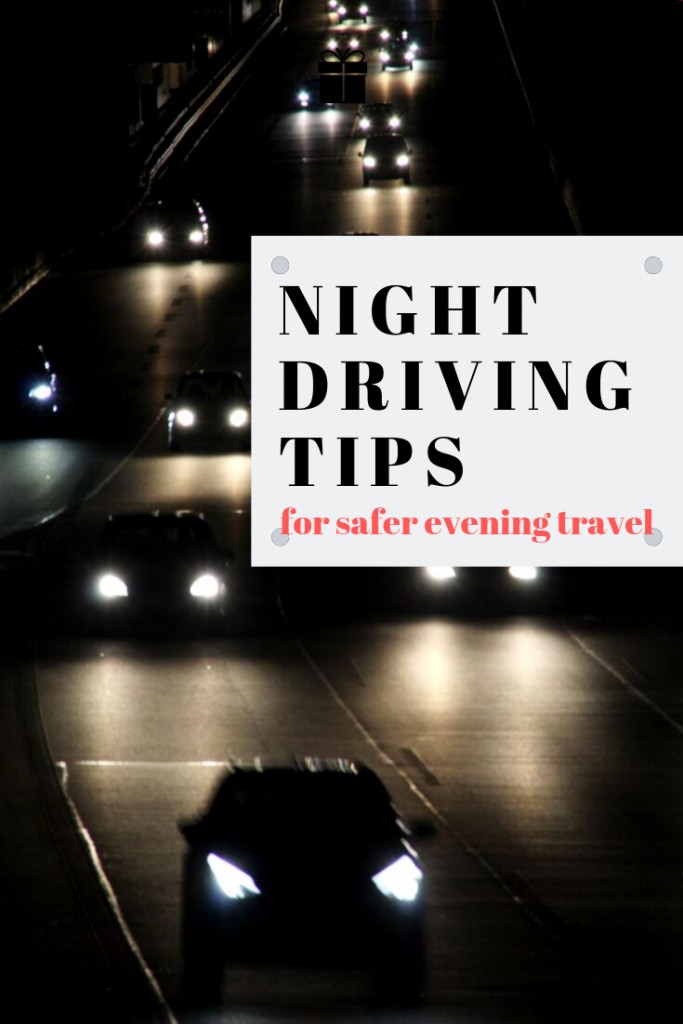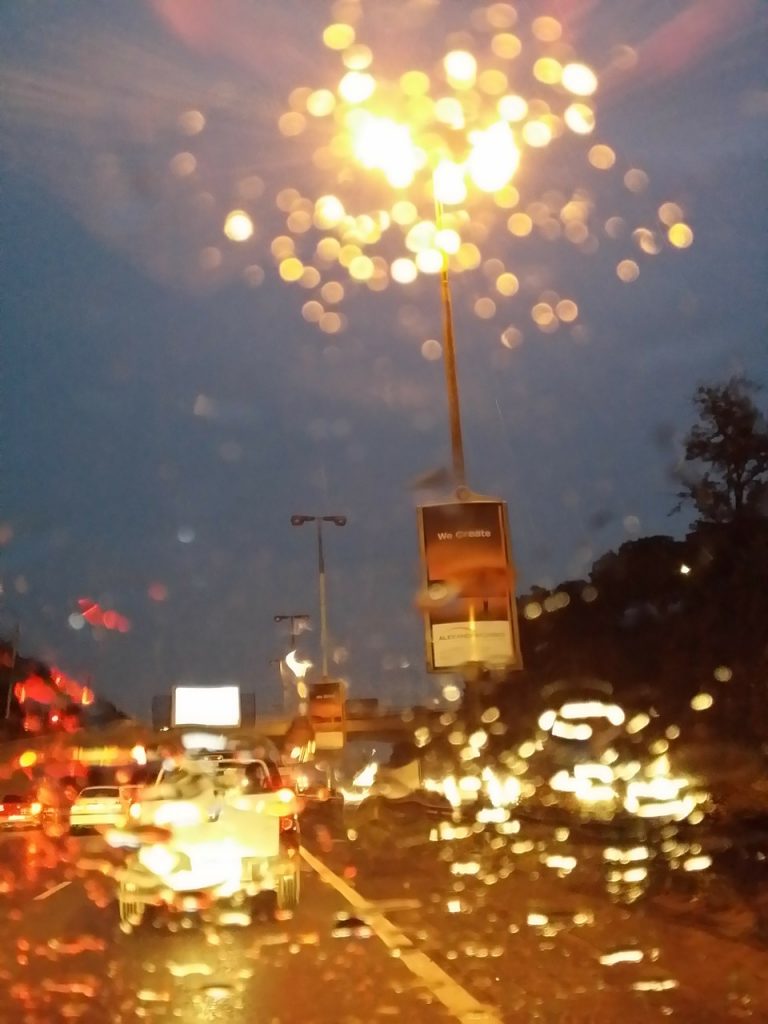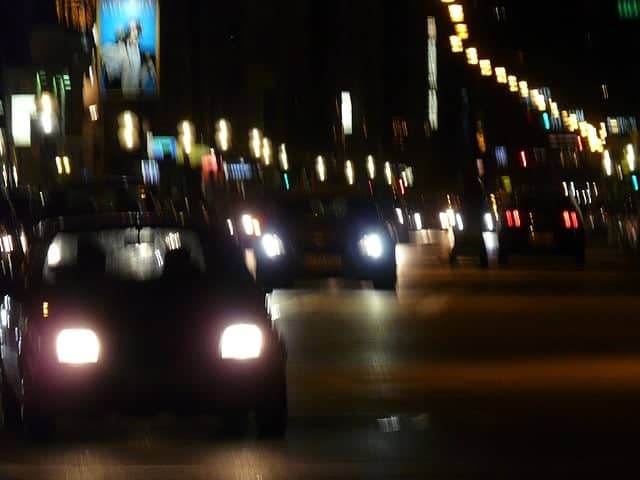With the days getting shorter and the nights getting longer, more and more people are on the road after dark. We turn our clocks back this weekend so we will be losing yet another hour of daylight but we still have places to be in the evening! These night vision tips are vital to keep us safe on the road. The older I get, the more I find that my night vision is not as good as it used to be. I hate to think that I am getting older but even our eyes start to show our age eventually! Night vision problems don’t only effect YOU but they impact every single person that might be on the road with you. When you get in the car to drive at night are you seeing things as clearly as you should be?
Posts feature partner companies & may be sponsored. Post contains affiliate links & I will be compensated if you make a purchase after clicking on links. As an Amazon Associate I earn from qualifying purchases.

Table of Contents
How Do You Know If You Have Night Vision Problems?
How do you know if you are having night vision problems? Some people find that it is harder to distinguish how far away an object is from their car. Others suffer from an increased glare coming from oncoming headlights and streetlamps. Other people find that their reaction time is slowed at night compared to daytime driving. All of these issues can become serious safety problems once you get behind the wheel of your car. Driving in the dark can pose extra challenges, so stay safe with these tips
More Driving Tips
- Is road safety linked to type of material used in construction?
- Car Traveling Tips for Long Distance Road Trips
- Green Road Trip Ideas for Frugal Family Fun!

✯Don’t want to miss the next post?✯
Follow Turning the Clock Back on Facebook | Twitter | Pinterest
Or join the private Facebook group for simple tips on going green!
Night Driving Tips for Safer Evening Travel
Did you know that traffic death rates are 3 times higher at night than they are during the day? That is a serious problem! If you have noticed a reduction in your night vision you may be interested in reading the informative graphic below. And keep reading for a few night driving tips to keep you safer on the road after dark!
Make sure your headlights are angled properly.
The angle can become skewed a bit over time so take your car to a professional and let them make sure your headlights are pointing where they need to be.
Make sure your headlights are CLEAN.
You can do this with a simple class cleaner and a rag or paper towel. Do this regularly to ensure you are getting as much light from them as possible.

Clean the windshield.
Make sure you clean off any dirt or debris regularly. Even if you can’t SEE dirt on there, doesn’t mean there isn’t a fine film of crud that is skewing your vision. You can use a product like Rainex to keep windshields clearer when it starts raining.
Make sure you mirrors are angled correctly.
While you want a good, clear view of what is going on behind and next to you, you also don’t want oncoming headlights to blind you. Angle the mirrors down just a TAD to keep the lights from shining right in your eyes.
Maintain proper eye health.
This is one of the most important aspects of achieving proper night vision! See your eye doctor and make sure you don’t need glasses. Try not to drive for hours on end without rest or your eyes will become fatigued. And make sure you are eating the right foods and taking the right supplements to maintain proper eye health!
Night driving statistics are scary. Driving after dark is significantly more challenging than driving while it is light outside. Knowing what lights to use when driving at night and ways to reduce night driving glare important to help prevent an accident. If you are struggling to see when driving at night, talk to your eye doctor. You can also purchase night driving glasses to help reduce glare Check out Car and Driver for more tips for driving at night.

Diane is a professional blogger and nationally certified pharmacy technician at Good Pill Pharmacy. She earned her BS in Microbiology at the University of New Hampshire and has worked in cancer research, academics, and biotechnology. Concern over the growing incidence of human disease and the birth of her children led her to begin living a more natural life. She quickly realized that the information she was learning along the way could be beneficial to many others and started blogging and freelance writing to share this knowledge with others. Learn more about her HERE.

As I get older and my eyes change for the worse, night driving does worry me a bit. I find my depth perception to be an issue.
What a great product! I always have trouble with nighttime glare when driving, so I will look into getting this for our cars, especially since my son will be driving soon!
I don’t see anywhere near as well at night. I prefer driving during the day.
I hate driving at night because I really have a hard time seeing! This would make me feel so much more comfortable!
The older I get, the less I like driving at night! That made me sound old, huh?? 🙂
I really hate driving at night because I wear glasses and the glare is just tremendous.
It’s easier when I’m in a big vehicle and higher up off the road though!
Very good information. Thanks
I have trouble seeing at night for sure. The lights flash at me and have bothered me for a while. I didn’t seem to care before or didn’t notice as much I guess. I have a cataract in each eye but not big enough to do anything about. I also wear contacts and glasses now. Getting older is no fun for sure. I always had great eyesight but no more. I do not look forward to driving at night but sometimes I just have to!!
Thanks for the great post, Diane! in January of this year, when I joined ZeaVision, the company behind the EyePromise products, I had issues driving at night. Glare had been a big issue, as was seeing in low light. I had no idea I could take a vitamin to help the quality of my vision. It takes a few months to build up stores of zeaxanthin which helps restore the density of the macular pigment. (This pigment affects the quality of one’s eyesight) But as you build up that pigment, you do notice the quality of your vision (at night and during the day) changes. Glare won’t bother you as much, nor do bright lights or bright sunshine. You also start to notice shades of color appear a bit more vivid. And your eyes adjust quicker to the darkness. It’s amazing. (I wouldn’t be working there or writing the post if it wasn’t!)
(As an aside, zeaxanthin, which is an antioxidant, is also found in the skin and brain. And I’ve noticed my skin looks so much better now. So that’s a nice added benefit.)
Thanks so much for the information. Glare has definitely become more of a problem for me since I have started getting older. I’m glad there seems to be something I can do about it!